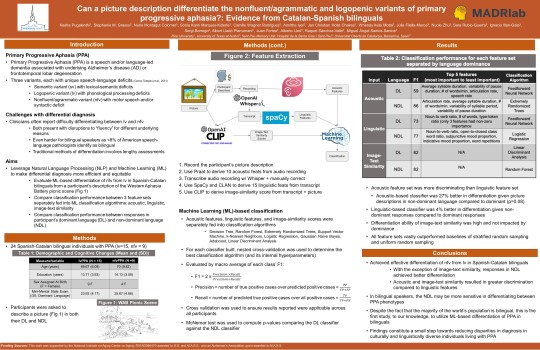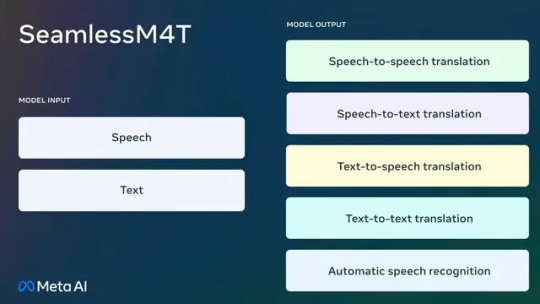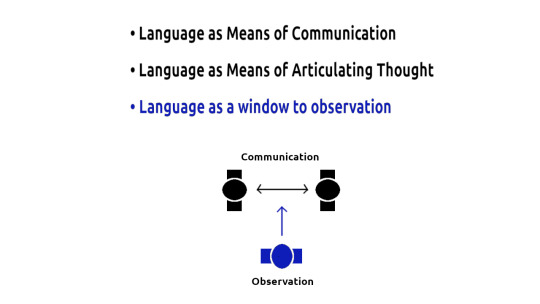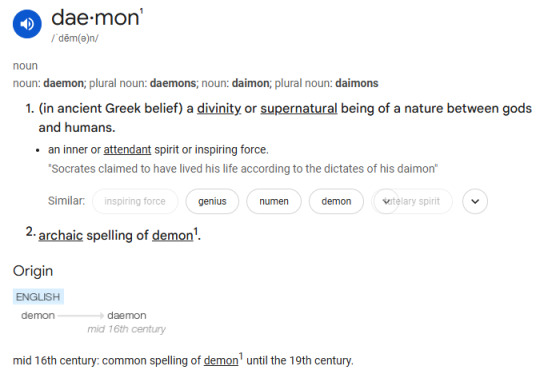#computational linguistics
Explore tagged Tumblr posts
Text
and if I negate the [so-named] eigenslur?
lmao actual investigation into the mathematical essence of the slur
#eigenslur#word embeddings#latent space#experimental linguistics#computational linguistics#linguistics#and again:#the eigenslur
127 notes
·
View notes
Text
A new look at our linguistic roots

Linguists and archaeologists have argued for decades about where, and when, the first Indo-European languages were spoken, and what kind of lives those first speakers led. A controversial new analytic technique offers a fresh answer.
An article from early 2024 on the use of computational phylogenetics for historical linguistics work on Proto-Indo-European. Read at Knowable Magazine (no paywall).
449 notes
·
View notes
Text
Tracing Roots: Dr. Suresh Kolichala’s Interdisciplinary Journey into the Origins of Dravidian Languages
Tracing Roots: Dr. Suresh Kolichala’s Interdisciplinary Journey into the Origins of Dravidian Languages @neosciencehub #Dravidian #Languages #InterdisciplinaryJourney #Sciencenews #neosciencehub
The quest to understand the origins and evolution of human languages is not merely a linguistic endeavour but a broad scientific exploration that intersects multiple disciplines. In this spirit, Dr. Suresh Kolichala’s recent study published by Oxford Academic offers remarkable insights into the Dravidian languages, spoken by millions across South Asia. This study is particularly significant for…
#computational linguistics#Dravidian Languages#featured#Indus Valley Civilization#population genetics#sciencenews
1 note
·
View note
Text
Can a picture description differentiate the nonfluent/agrammatic and logopenic variants of primary progressive aphasia?

Link to: Abstract
Post by Sonia-K. Marqués Kiderle, 14. March 2024
#slp#linguistics#computational linguistics#ppa#primary progressive aphasia#language#acoustics#speech#speech language therapy#speech language pathology#diagnosis
1 note
·
View note
Text
Tried an LLM-powered thesaurus today just for giggles and it helpfully informed me that a synonym for "leg" is "penis".
2K notes
·
View notes
Text
The data concludes that social media censorship algorithms are overwhelmingly racist in favor of white women, and I theorize that the most affected by them are rural white men and inner city black men.
0 notes
Text
Meta Releases SeamlessM4T Translation AI for Text and Speech
Meta took a step towards a universal language translator on Tuesday with the release of its new Seamless M4T AI model, which the company says can quickly and efficiently understand language from speech or text in up to 100 languages and generate translation in either mode of communication. Multiple tech companies have released similar advanced AI translation models in recent months. In a blog…

View On WordPress
#Applications of artificial intelligence#Computational linguistics#Creative Commons#Gizmodo#Human Interest#Internet#Large language model#Machine translation#Massively Multilingual#Massively Multilingual Speech system#META#Meta AI#Multilingualism#Paco#Paco Guzmán#Speech recognition#Speech synthesis#Technology#Translation
0 notes
Text
I'm not a linguist and I find the whole excercise of conlanging, while I love it and respect it, beyond my abilities, but I do have one thing or two to say about linguistic diversity and how boring is to have a "common" or "basic" language in fantasy or science fiction without exploring the implications.
Being a bilingual speaker of Spanish and English, and someone that because of work reasons and entertaiment tastes interacts a lot with English, I tend to see English as the equivalent of those "common" or "basic" languages of speculative fantasy. As a useful tool for communication, science technology and commerce. In real life, however, as you are aware, the expansion of English tends to undermine local languages, it's considered more valuable to know English that to know the language of your grandparents, or learn any other language you just feel curious about.
The experiences of every multilingual person are different, but in mine I know English, I write and read and listen to English a lot. But I don't consider myself an English *speaker*, I speak Spanish and more to the point Argentine Spanish, that's the culture I identify with, and it's the language I use to express my feelings and inner thoughts. I can't imagine saying "I love you" to anyone in English, to me it's just a tool I use to access to knowledge or communicate through language barriers ("basic", "common"). But interestingly, by both writing and participating in the wider English-speaker internet culture, isn't it part of my own culture, as an individual, too?
The fact is that English also has a culture(s) and a history and a corpus of literature. So when we write about "Common" or "Basic" languages in fiction we need to ask ourselves: where did they come from? How did they become the standard? Is there a literature, a canon, a culture of "Common" in your fantasy world? What about other languages, other cultures that aren't raised learning it and see it just as a tool? Because no matter the strenght of Anglophone cultural imperialism and the social value of learning English, I don't see Argentines, or for that matter Chinese, Italians or Russians abandoning their first language. And yet even in English and in all other languages (ESPECIALLY other languages, English is remarkably uniform) there is a variety of dialects. And we need to remember, once Latin was spoken only in a village in central Italy, and English in a rather remote rainy island. They weren't destined to have their future roles, history drives language.
So, when an author goes for the "universal language" explanation to avoid linguistic misunderstandings, for me, it raises more questions that I believe are worth exploring.
#cosas mias#anyways I will write more WHEN I get my computer I can't type unhinged rants like this#worldbuilding#linguistics#language#biotipo worldbuilding
866 notes
·
View notes
Text
shit like this is why "linguistics the missing link between humanities and STEM" is a hill I'm planning to die on
“Bastard” was generally a term for a hybrid plant, occurring in technical texts on horticulture.
It could be, and very occasionally was, used for personal abuse, as in King Lear, where Edmund is referred to as a “bastard”. But this is no general term of abuse, let alone banter, as you might see it used today. It is a pointed attack on him being of illegitimate parentage, genetically hybrid, suspect at his core.
#shakespeare#linguistics#historical linguistics#computational linguistics#language#digital humanities
43 notes
·
View notes
Text
New open-access article from Georgia Zellou and Nicole Holliday: "Linguistic analysis of human-computer interaction" in Frontiers in Computer Science (Human-Media Interaction).
This article reviews recent literature investigating speech variation in production and comprehension during spoken language communication between humans and devices. Human speech patterns toward voice-AI presents a test to our scientific understanding about speech communication and language use. First, work exploring how human-AI interactions are similar to, or different from, human-human interactions in the realm of speech variation is reviewed. In particular, we focus on studies examining how users adapt their speech when resolving linguistic misunderstandings by computers and when accommodating their speech toward devices. Next, we consider work that investigates how top-down factors in the interaction can influence users’ linguistic interpretations of speech produced by technological agents and how the ways in which speech is generated (via text-to-speech synthesis, TTS) and recognized (using automatic speech recognition technology, ASR) has an effect on communication. Throughout this review, we aim to bridge both HCI frameworks and theoretical linguistic models accounting for variation in human speech. We also highlight findings in this growing area that can provide insight to the cognitive and social representations underlying linguistic communication more broadly. Additionally, we touch on the implications of this line of work for addressing major societal issues in speech technology.
167 notes
·
View notes
Text

The Purpose of Language in General
I found that Language has three important uses is our every day life.
(1) The first one is obvious. Language as means of communication. We use language to communicate our ideas and desires to other people. duh!
(2) The second one is more subtle but also just as important. Language as means of articulating thought. We use language to construct and hold ideas together. Even if we do not like talking to people, language is incredibly important.
Ferrel children are children who grew in the wild with no access to human upbringing. These children are mentally handicapped and I believe this is largely due to lack of language. 10,000 years ago our brains where primitive but not very different from today. My personal hunch is that crude language skills leads to crude thinking. Thats how we got by in those days. And that is the difference between us modern humans and humans 10,000 years ago.
There are people who do not have an inner monologue yet they are very intelligent. I would bet that these people still have some sort of mechanism similar to language that allows them to articulate thought. Its based on other brain machinery such as vision and emotion.
(3) The third one was pointed out by a colleague. Language is a window to outside observation. We don't have to be involved in the conversation to understand what other people are talking about and learn from them. Documentation important also. History is preserved by written language. Only after written language did humanity started to thrive.
Sooo, what does language have to do with computer science, you may wonder. Well, programming languages are real languages. My claim is that programming is a communications problem. I see the machine as an alien species from ourselves. And the task at hand is to find a way to communicate to them and inform them what we want them to do.
(1) The first aspect (the obvious one) of programming languages is to do just that. We need to communicate to the machine what we want them to do.
(2) The second aspect (the more subtle one but just as important) of programming languages is for our sake to understand what we are telling the machine. We use programming languages to articulate ideas in our head before typing it on the computer. That is why we insist and persist on using JSON and XML to store data. Even thou those formats are incredibly inefficient from the view point of a machine.
(3) The third aspect of programming languages is a form of documentation. Other people can understand what the programmer is telling the machine. Its why open source is popular among programmers.
21 notes
·
View notes
Text



Etymology of daemon from Oxfrod Languages
#daemon#demon#etymology#linguistics#languages#words#english#16th century#greek#belief#supernatural#gods#humans#humanity#spirit#computing#language#daimon
13 notes
·
View notes
Text


#why do you need this many legs sir#toedscruel#woah holy shit i just looked outside and it's super dark out. i'm queuing this up at noon why is it so dark#lemme look#yeah it's. dark. there's a bunch of dark evil clouds in the sky lookin like it's gonna storm oh i just heard thunder yeah it's gonna storm#uh oh. good thing i'm queueing this guy up before the storm so my power doesn't go out. this happens frequently#anyway toedscruel. it's definitely an evolution of toedscool. it definitely looks like tentacruel#if it's a different pokémon why does it evolve into something so suspiciously similar. i can understand wigglet and wugtrio being#different pokémon. just based on how different they are from diglett and dugtrio. even though their names are a typo away#but this guy is. it. really should've just been a regional form‚ i think#unrelated‚ but on random occasions seemingly whenever someone new finds the blog and reads my tags#i'll occasionally get folks asking me how i type commas in the tags#the answer is that this character → ‚ ← is not a comma. it just looks identical to a comma because of tumblr's font#it's actually a lower quotation mark. so for a language that does ‚this kind’ of quotation marks#and i use it as a comma because i have a fancy linguist keyboard that can type all kinds of fancy symbols. and it's easily accessible#some of my favorites include the single-character ellipse: …#the degrees symbol: º and °#small A: ª#fractions: 1⁄2 2⁄3 1⁄4 etc#and obviously IPA symbols and various diacritics‚ so that i can type the word pokémon without having to copy-and-paste the E#currency symbols‚ too. £¢$§¥ euro is on here somewhere but i don't know where bc i don't use that one really#i just like being able to type things the way they're supposed to be. like it's 80º outside. the stopwatch costs 15¢ in the shop#and‚ of course‚ pokémon. it's the linguistics and computer 'tism combining together i think#it's storming harder now but i found the euro symbol: €#oh fuckin hell my lights just flickered. this is gonna be rough..!
61 notes
·
View notes
Text
virtual (adj.)
late 14c., "influencing by physical virtues or capabilities, effective with respect to inherent natural qualities," from Medieval Latin virtualis, from Latin virtus "excellence, potency, efficacy," literally "manliness, manhood" (see virtue). It preserves Middle English virtue in the sense of "efficacy, power to do."
The meaning "being something in essence or effect not in fact; existing virtually though not actually" is attested from mid-15c., probably via the now-obsolete sense of "capable of producing a certain effect" (early 15c.). Opposed to actual, real, literal.
By 1831 in optics, of apparent images, as in a reflection. The computer sense of "not physically existing but made to appear by software" is attested from 1959, originally of memory.
Etymonline
#quote#language#linguistics#virtual#technology#digital#computers#virtue#software#hardware#internet#electronics
20 notes
·
View notes
Text
That's a nice solution you've got there. It would be a shame if it wasn't the root cause of the problem.
34 notes
·
View notes
Text
there's two kinds of university professors and they are "i take attendance every class, if you're sick you need to tell me a day before, you can only miss three classes per semester" and "hey i noticed you haven't been to class at all in the past two months, are you handling the coursework okay? feel free to ask me if you have any questions!"
#ahhh my computational linguistics professor. he actually said the second one word-for-word to me#anyways too bad my current class is taught by prof no.1 bc i am in pain but i already missed a few classes and i dont wanna miss too many#🌌
68 notes
·
View notes